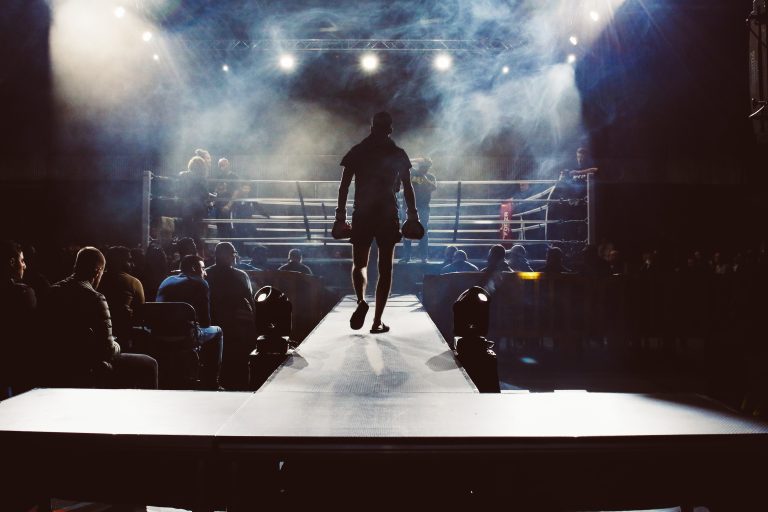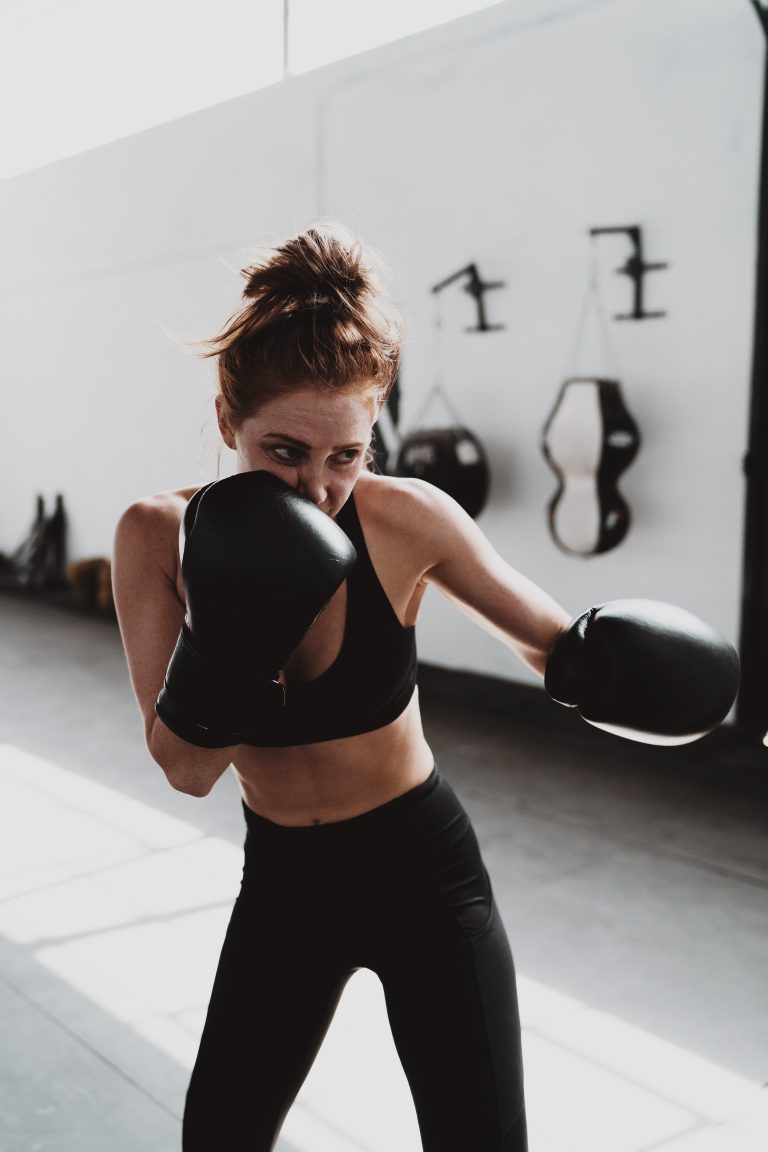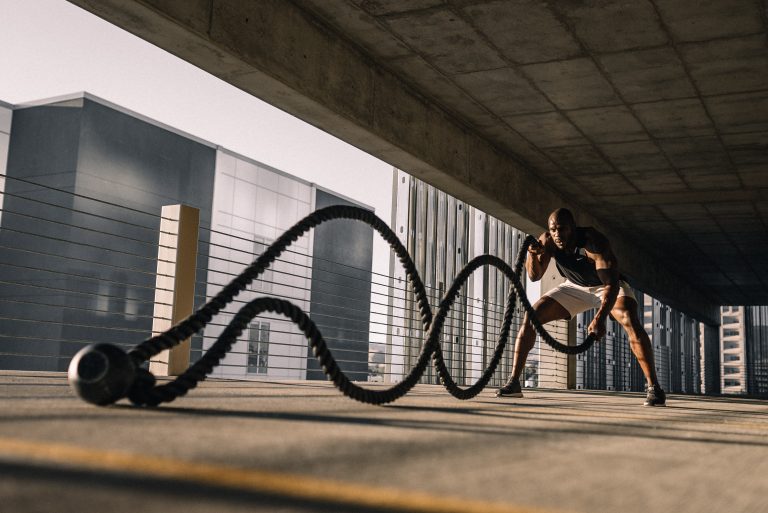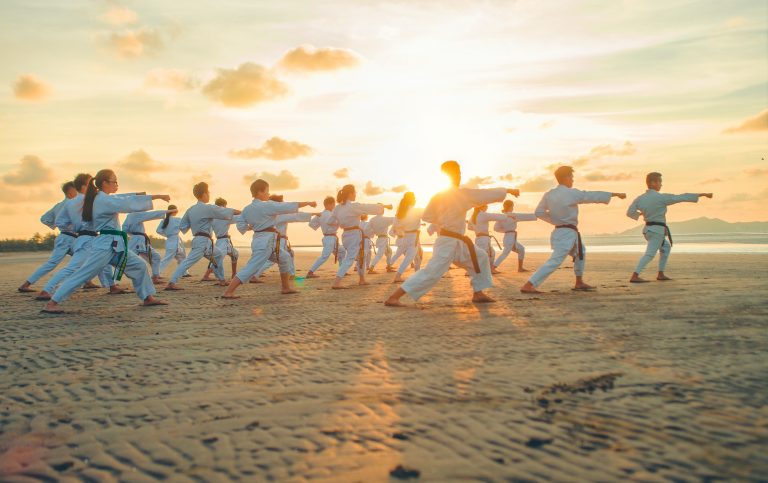What is the Best Age to Start Karate?
Karate is a popular martial art practice that spans multiple generations. Whether you choose to learn karate for self-defense, physical fitness, or for spiritual growth, karate can offer a range of benefits when practiced regularly. The best age to start karate depends on a range of factors, such as the individual’s age, physical development, and goals. In this blog post, we’ll explore the considerations you should make when determine the best age to start learning karate.
Benefits of Karate
Karate is a martial art practice that dates back centuries. The practice combines guard and blocking techniques with punches, kicks, and striking techniques. It can be practiced as a form of self-defense, as a fitness and conditioning exercise, or as a form of spiritual growth.
- Self-Defense: Karate teaches the principles of self-defense, such as proper stance, blocking and evading techniques, proper punching and kicking form, and mental focus. With regular training and practice, you can learn to defend yourself in dangerous situations.
- Fitness and Conditioning: Karate allows for a full-body workout that targets all muscle groups in the body. It can also improve your flexibility and agility, as well as help to increase your strength and endurance.
- Spiritual Growth: Karate involves more than just physical exercise – it is also a practice of discipline and focus that can lead to spiritual growth. Through regular practice and discipline, you can develop patience and focus, as well as gain new perspectives on life.
These are just some of the potential benefits of practicing karate. But to get the most out of the practice, it’s important to start at the right age.
The Best Age to Start Karate
To determine the best age to start karate, it’s important to consider a person’s individual needs and goals. Generally speaking, younger children should start learning karate between the ages of five and seven. At this age, children are physically capable of participating in karate classes without risking injury. Young children may also benefit from the improved physical coordination, coordination and focus that comes with karate training.
For older children, ages between eight and twelve is the ideal starting age for karate. At this age, children are more physically and mentally capable of understanding the principles behind karate and developing the discipline necessary to practice it. Additionally, older students may be more motivated to continue practicing and advancing their skills in karate. Karate classes for older children should emphasize physical conditioning exercises in addition to martial arts techniques like blocking, striking, rolling and grappling.
For teenagers and adults, there is no definitive answer for when to start karate; each person should evaluate their own needs, physical condition and goals before beginning karate classes. Similarly, adults may need to be more mindful of possible health risks associated with more vigorous martial arts activities like grappling and rolling.
Consideration Factors When Choosing Karate Classes
When determining the best age to start karate, it’s important to consider other factors besides age, such as the individual’s physical condition and goals. Additionally, it’s important to find a reputable karate instructor with experience teaching both children and adults. A knowledgeable instructor can guide you towards achieving your goals while also ensuring your safety during class.
Here are some questions you should ask yourself when looking for a karate class:
- Are there classes specifically for children? If so, are the classes appropriate for my child’s age?
- Does the instructor have extensive experience teaching adult classes?
- Is there an emphasis on physical conditioning exercises in addition to martial arts techniques?
- Are there specific classes dedicated to individual needs such as self-defense or spiritual growth?
Regardless of your age or needs, choosing the right karate class will help you get the most out of your karate practice.
Practice Safety When Participating in Karate Classes
No matter what your age, it’s important to practice safety when doing any type of physical activity – including karate classes. To ensure your safety while doing karate:
- Wear appropriate clothing – avoid wearing clothes that may restrict your movements like jeans or jewelry that can catch on clothes.
- Stay hydrated – drink water before and after class.
- Warm up properly – Do a few minutes of light stretching before starting your karate class to prepare your muscles for activity.
- Pay attention in class – Listen carefully to your instructor’s instructions and follow their directions.
- Don’t overdo it – Pay attention to your body and stop if you feel any pain or discomfort.
Conclusion
Karate is a centuries-old martial art practice with a range of physical and spiritual benefits when practiced regularly. The best age for starting karate depends on the individual’s age, physical condition, and goals; younger children should start learning karate between the ages five and seven while teenagers and adults should evaluate their own needs before beginning classes. It’s also important to find a reputable instructor who can provide guidance while ensuring safety during classes. With careful consideration and practice safety protocols, learning karate can be an enjoyable experience that benefits everyone regardless of their age or skill level.
What is the Best Age to Start Karate?
Karate is a martial art that has numerous mental and physical benefits for individuals of all ages. However, parents often wonder what the best age is for their children to start learning karate. There is no definitive answer to this question because the starting age depends on several factors. In this blog post, we’ll cover some of the most frequently asked questions about the best age to start karate and provide valuable insights to help you make an informed decision.
What is Karate?
Karate is a Japanese martial art that originated from Okinawa during the 19th century. It’s a system of self-defense techniques that involves striking, kicking, punching, and blocking. Karate training also includes physical conditioning, sparring, and kata (forms). Kata is a series of movements practiced in a specific sequence to simulate a fight against imaginary opponents.
What are the Advantages of Learning Karate?
Karate has countless physical and mental benefits for kids, teenagers, adults, and seniors. Here are some of the top advantages of learning karate:
Physical Benefits
– Improves cardiovascular health and lung capacity.
– Enhances flexibility, balance, and coordination.
– Builds muscle strength, endurance, and speed.
– Develops motor skills and body awareness.
– Promotes weight loss and body composition.
– Increases bone density and joint mobility.
– Reduces the risk of chronic health problems like osteoporosis and arthritis.
Mental Benefits
– Boosts self-esteem, confidence, and self-discipline.
– Teaches focus, concentration, and attention to detail.
– Cultivates resilience, determination, and grit.
– Develops problem-solving skills and critical thinking.
– Encourages creativity, imagination, and self-expression.
– Enhances memory, learning, and cognitive function.
– Reduces stress, anxiety, and depression.
What is the Best Age to Start Learning Karate?
The best age to start learning karate depends on various individual factors such as physical development, emotional maturity, cognitive ability, and personality traits. Here are some age-specific suggestions:
Preschoolers (3-5 Years)
Preschoolers can benefit from basic karate movements and concepts that promote motor skills, coordination, social interaction, and self-awareness. Karate classes for preschoolers should be fun, engaging, and active, using games, music, colors, and stories to introduce the fundamental principles of karate while also nurturing creativity and imagination.
Children (6-12 Years)
Children can begin learning more advanced karate techniques and tactics that involve punching, kicking, grappling, and sparring. Karate classes for children should focus on building confidence, discipline, respect, and responsibility while also fostering teamwork, communication, and leadership skills. Children should be encouraged to participate in regular tournaments and competitions to test their skills and showcase their achievements.
Teenagers (13-18 Years)
Teenagers can benefit greatly from the physical and mental challenges of karate, as it can help them develop resilience, self-control, adaptability, and emotional intelligence. Karate classes for teenagers should be more demanding and rigorous, incorporating high-intensity training, endurance drills, and competitive sparring. Teenagers should also be taught the ethical and philosophical aspects of karate, such as humility, compassion, and non-violence.
Adults (19-50 Years)
Adults can enjoy karate as a lifelong pursuit for fitness, health, self-defense, and personal development. Karate classes for adults should cater to their specific needs and goals, such as weight loss, stress management, injury prevention, or self-defense skills. Adults should also be exposed to different styles and systems of martial arts to broaden their perspectives and enhance their diversity.
Seniors (51+ Years)
Seniors can benefit from karate as a gentle and low-impact exercise that promotes physical mobility, joint health, and mental wellness. Karate classes for seniors should be adapted to their physical abilities and limitations, focusing on agility, flexibility, balance, and relaxation. Seniors should also be encouraged to engage in social activities and events that enhance their sense of belonging and purpose.
What Factors Should I Consider When Choosing a Karate Class?
Choosing the right karate class for yourself or your child is crucial for maximizing the benefits of learning karate. Here are some factors to consider when choosing a karate class:
– Instructor Qualifications – look for an instructor who is certified, experienced, and qualified to teach karate techniques and principles.
– Class Size – smaller class sizes ensure personal attention, feedback, and correction from the instructor for optimal learning outcomes.
– Curriculum – check whether the class offers a comprehensive and progressive curriculum that covers essential karate skills and concepts at appropriate levels.
– Culture – observe the class to see whether the culture and atmosphere are friendly, supportive, and respectful, fostering a positive learning and social environment.
– Safety – verify whether the class follows safety protocols and guidelines for preventing injuries and promoting well-being, such as proper equipment, first-aid readiness, and emergency plans.
Conclusion
Learning karate is a rewarding and enriching experience that offers numerous physical, mental, and social benefits for people of all ages. The best age to start learning karate depends on individual factors, such as physical development, emotional maturity, cognitive ability, and personality traits. By considering these factors and choosing the right karate class, you can maximize the benefits of karate training and achieve your goals in a safe, supportive, and enjoyable manner.
Inhaltsverzeichnis






